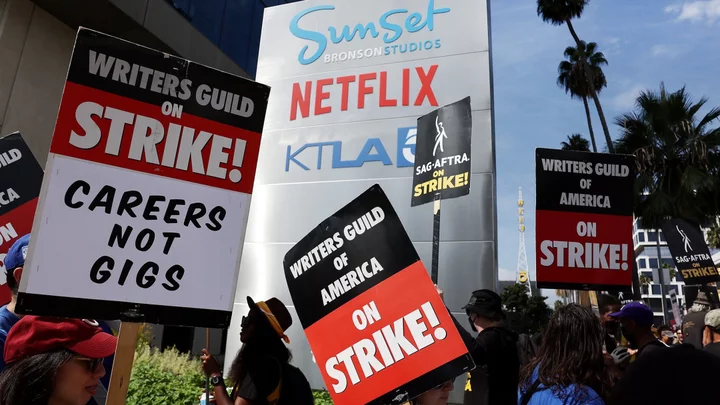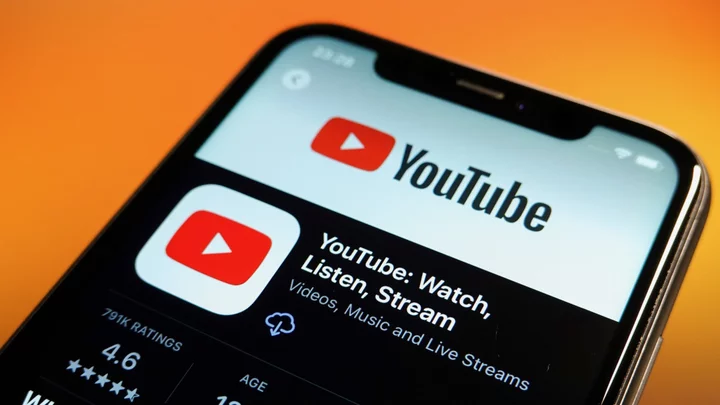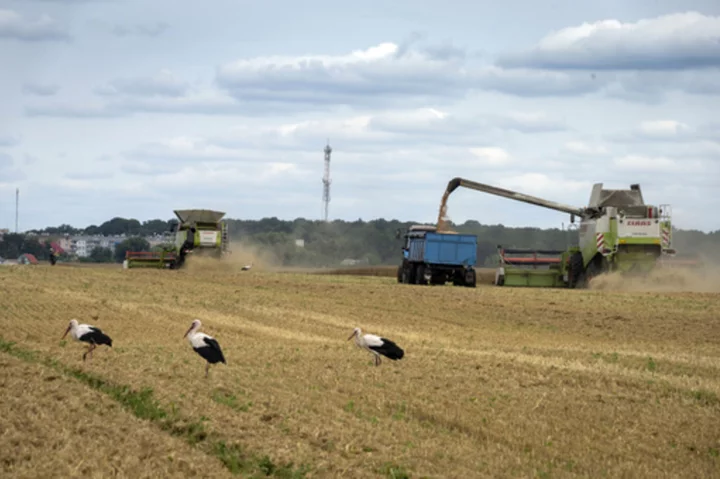Hollywood's writers finally laid down their picket signs on Wednesday, ending their strike after the Writers Guild of America (WGA) announced a tentative agreement with the Alliance of Motion Picture and Television Producers (AMPTP), the organisation that represents studios and streamers. The next step is for the WGA's members to review the proposed deal for themselves, before voting on whether to accept it.
The WGA revealed the terms of the new deal on Tuesday, giving its members the opportunity to scour through the 94-page Memorandum of Agreement themselves. But its Negotiating Committee has already enthusiastically endorsed the agreement, as have the WGAW Board and the WGAE Council.
SEE ALSO: The WGA strike is officially overHere are some of the key terms from the new agreement:
AI can't be used to write scripts
One of the big issues fuelling the strike was the use of generative artificial intelligence. The WGA initially demanded that AI be barred from writing or rewriting literary material, as well as from generating source material. It also requested that no material covered by the contract be used to train AI.
The new agreement affirms that AI is not considered a writer, and anything it generates can't be considered literary, assigned, or source material. It does leave room for writers to use artificial intelligence as a tool, provided the production company consents. But writers can't be compelled to use AI to create material, and the company must disclose if they give a writer AI-generated material to work with.
When it comes to using writers' work to train AI models, it gets a little more complex. The agreement essentially acknowledges the uncertainty surrounding the current legal landscape, and reserves the right of writers to assert that training AI using their writing is prohibited. A large number of writers, including the likes of George RR Martin and John Grisham, are currently suing OpenAI for copyright infringement — how these lawsuits shake out will undoubtedly affect how Hollywood operates in future.
Better streaming residuals and transparency regarding numbers
A big talking point going into the strike was the compensation (or relative lack thereof) that writers receive from streaming services. The new deal will see this get boosted in a big way, with large increases to foreign streaming residual payments and a new bonus based on streamer viewership. The former will now be based on a streamer's foreign subscribers, amounting to a 76 percent increase in residuals from the largest platforms, while "a bonus equal to 50 percent of the fixed domestic and foreign residual" will be payable on films or series viewed by 20 percent or more of a platform's domestic subscribers in the first 90 days.
And as for viewership transparency? "The Companies agree to provide the Guild, subject to a confidentiality agreement, the total number of hours streamed, both domestically and internationally, of self-produced high budget streaming programs (e.g., a Netflix original series)," reads the summarised agreement on the WGA site. "The Guild may share information with the membership in aggregated form."
Featured Video For You Why the WGA is strikingIncreased minimum rates for writers
At the beginning of May, the WGA was demanding annual minimum rate increases of 5 to 6 percent, while the AMPTP was offering 2 to 4 percent. Under September's tentative agreement, most minimums will be increasing by 5 percent this year, followed by 4 percent in 2024 and 3.5 percent in 2025. A list of current minimums can be found on the WGA website.
Minimum staffing for TV writers' rooms
Back in May, the WGA was asking for one writer per episode on anything up to a six-episode TV season, then a writer for every two episodes after that (up to a maximum of 12 writers in total). The AMPTP rejected this and refused to counter. Clearly solid progress has been made, though, because the new proposed deal outlines minimum staffing numbers for writers and writer-producers across seasons of varying lengths (three writers, including three writer/producers for a series of six episodes or less, moving up to six writers, including three writer/producers, on a series of 13+ episodes).
The deal also gets a guarantee of at least 10 weeks of work for writers working on shows that have yet to be given the green light.
You can read the full summary of WGA deal points here, or read the entire 94-page contract here. It's worth noting that while the writers' strike is now over, the Screen Actors Guild – American Federation of Television and Radio Artists (SAG-AFTRA)— is still on strike while their negotiations with the AMPTP continue.
Additional reporting from Sam Haysom.









